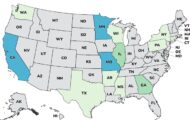The Greenwood School District 50 sent a letter to parents on June 1, 2015 stating that the South Carolina Department of Health and Environmental Control (DHEC) is investigating a possible Shiga toxin-produing E. coli (STEC) infection at the Springfield Elementary School. A 2-year-old boy has died from complications relating to an E. coli infection. Myles Mayfield died Sunday night at Greenville Memorial Hospital.
 The entire school has been sanitized, and the health department is monitoring the situation. “We take these matters very seriously,” said Superintendent Darrell Johnson. “We are very concerned about the health and well-being of every student and adult at Springfield and in our district.”
The entire school has been sanitized, and the health department is monitoring the situation. “We take these matters very seriously,” said Superintendent Darrell Johnson. “We are very concerned about the health and well-being of every student and adult at Springfield and in our district.”
The letter states that the symptoms of a STEC infection include severe stomach cramps, diarrhea, which is often bloody and/or watery, and vomiting. A mild fever may also be present. Most people get better within a week, but some become very ill and may develop hemolytic uremic syndrome (HUS), which can cause kidney failure and death. Children under the age of 5 are especially susceptible to HUS development.
STEC is spread by eating contaminated food, drinking raw milk or other unpasteurized dairy products, by drinking contaminated water, having direct contact with animals, or contact with the feces of infected people. The letter urges people to avoid eating undercooked or raw meat, raw milk, and unpasteurized fruit juices, and to prevent cross-contamination when preparing food.
To safeguard the public, do not send your children to school or daycare if they are sick. If they have diarrhea, keep them at home and away from school until they are completely well and have been cleared by a doctor as healthy enough to return to school. Two negative STEC test results are required for all students with an E. coli infection before they can return to school or daycare.
If you child has diarrhea that lasts for more than three days, or is accompanied by a fever, stomach cramps, blood in the stool, or so much vomiting that they can’t keep liquids down, see a doctor immediately. If your child passes very little urine, get to a doctor as soon as you can; this is a symptom of HUS.




